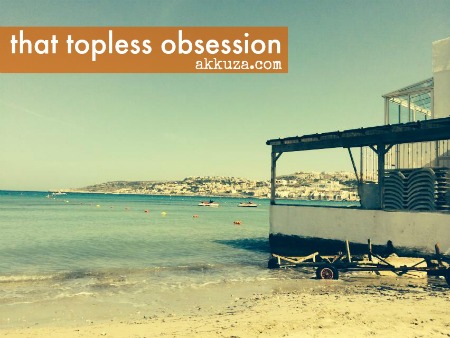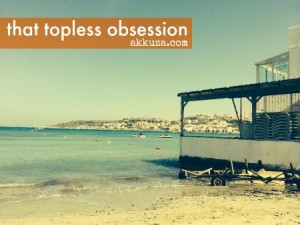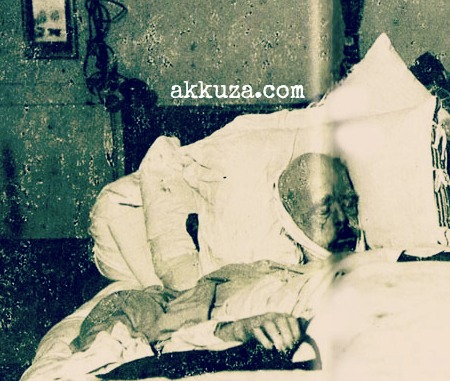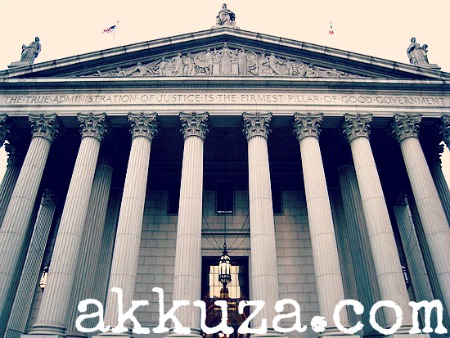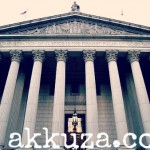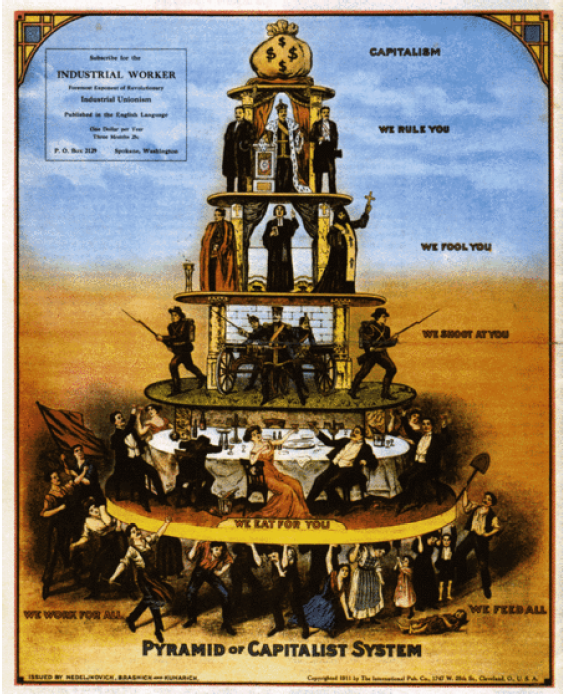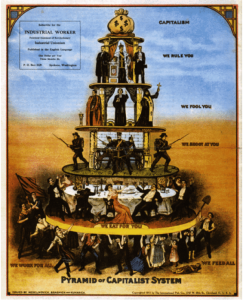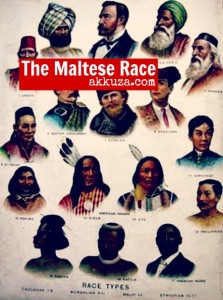 It’s almost eleven o’clock on Sunday morning. In my church going days this was the time for the infamous Sunday mass ritual complete with sermon, parade and chit chat on the church parvis just before heading off to Sunday lunch. For a long time through my childhood and adolescence we counted the mores and values of the Catholic Church as our own. Those days are long gone and it is no longer a question of pointing your finger at the Bishops and their flock whenever you feel that the moral compass has gone haywire. To be honest it has become harder and harder to identify the source of our common values in a nation that has discovered a plurality of divisions that go beyond the traditional good and evil fault lines that have always aided us to paint a chiaroscuro picture.
It’s almost eleven o’clock on Sunday morning. In my church going days this was the time for the infamous Sunday mass ritual complete with sermon, parade and chit chat on the church parvis just before heading off to Sunday lunch. For a long time through my childhood and adolescence we counted the mores and values of the Catholic Church as our own. Those days are long gone and it is no longer a question of pointing your finger at the Bishops and their flock whenever you feel that the moral compass has gone haywire. To be honest it has become harder and harder to identify the source of our common values in a nation that has discovered a plurality of divisions that go beyond the traditional good and evil fault lines that have always aided us to paint a chiaroscuro picture.
I remember Marsalforn’s priest (known to the flock as il-Kappillan) promoting numerous missionary efforts during the months of summer when his church would be full to the brim with the sudden influx of ‘Maltin’ who had come over to Gozo to spend their summer vacation. To the kids the idea of a mission was a remote place where the poor underprivileged, unlucky and pagan souls would be nourished with food for the spirit and for the flesh thanks to the intervention of intrepid missionaries. They might have been a reality but it was a reality that was far away. The sense of remoteness would only be breached when the first shipload of Albanians would reach our shores in the early nineties.
We grew up with a cushioned mentality of what brotherly love and concern is about. At school I heard first of the La Sallian Freres around the world spreading the word through education. Then I learnt about the not too lightweight methods of Jesuits like Francis Xavier and their trips to preach to foreigners all the way to the Orient. I came across the Freres again recently when watching a documentary about the history of what was once the Belgian Congo. Their schools have survived the upheavals since independence and they now include history teachers teaching young Congo residents the path that the Congo had to take towards eventual freedom and self-determination. Congo’s first short-lived president Patrice Lumumba had for long preached a Congo where “the blacks would be white and the whites would be black”.
But I digress. Our concept of “foreigner” were forged in colonial times and then continued to be moulded in post-independence Malta that probably had not shed its colonial mentality. For long the foreigner was a tourist with all the idiosyncrasies he could bring. He was a tourist to be charged according to the hidden prices on the menu (still is) and someone who could leave a penny or two on this young republic’s soil. Politically with the arrival of Mintoffian principles combining fabricated nationalism and aggressive participation on international fronts, the foreigner became a “barrani” – an outsider – a concept that is encapsulated in very similar terms to “not local”. We had to choose with whom to deal with and who would be our friend in times of need.
There is no doubt that the politically expedient mechanism was absorbed into our way of thinking. The irony is not lost when you see that this kind of political tool culminated in a legislation on “foreign (outsider) interference”. Setting aside the political undertones, it says much about the lilliputian element in the mentality. “We are Maltese and no outsider will tell us what to do”. Inevitably such a narrative required a fleshing out of the myth of the ‘Maltese Race’ – for which we came up with a word that is only used in one other circumstance ie. the United Nations or Gnus Maghquda. By 1979 we had Gensna (technically “Our Nation” but giving off serious whiffs of “Our Race”). The language of “us and them” had been packaged roughly and served its purpose well. It probably was here to stay.
Fast forward to the nineties where we began an uncomfortable rapprochement to the continent to our north. We may have made giant strides towards the “Europeanisation” of our nation structurally but come the referendum on EU membership the “us and them” mentality showed that it was going nowhere. “Them” in this case was the Europeans. We had the derisory, ridiculous, statements of parts of the opposition to membership regarding AIDS, Sicilian workers et al but they were there and I am not too sure that they were easily dismissed. Without making a value judgement on EU membership itself, I believe that it is safe to say that Malta might have politically and economically joined a wider club of peers but a substantial part of its population was still torn about the need to have anything to do (or depend on) the outsiders.
An uneasy membership had begun and it would not be long before we would have a government pouncing upon the uneasiness of a large swathe of our population with the concept of “the others”. It could have been any party mind you – so long as it is one that relies on substantial doses of populism there would always be a vein to be tapped – a vein that dislikes the outsider, snobs the foreigner and demonstrates all the makings of an intolerant mentality.
The Albanian ships had just been a forewarning. Soon we would have an ever increasing wave of refugee seekers escaping the turmoils of the Dark Continent. We would also absorb a large amount of people escaping the ugly reality of the Balkan break up. Later on (more like recently) we would add to those the East European (non-EU) diaspora looking for a better life. The Gens Malti suddenly found itself knee deep in barranin. Would it cope? Could it cope?
In this year’s address to the Luxembourg population on Duke’s Day, Prime Minister Xavier Bettel surprised the non-Luxembourgish community in Luxembourg (the country, not the city, has 48% of non-Luxembourgers in its population in 2014) by addressing them specifically. He switched to French from Luxembourgish to do so (already an immense concession) and proceeded to tell the “foreign” community of how they are welcome in Luxembourg. “You may seem to be a problem at the start but I see you as a challenge, a positive challenge and an opportunity”. I paraphrase the sense of his speech but that was Bettel’s attitude in a nutshell. Luxembourg would make the most of the presence of non-natives – not complain about them. (see Luxembourg’s score on the Migration Policy Index here).
It’s not all about Migration though. It’s about a general attitude to anything conceived as non-Maltese i.e. foreign. Trying to understand this obsession with the Maltese Race is not simply restricted to the dangerous gibberish spouted by Imperium Europa followers. It means trying to understand how it is that we form our ideas about who and what is non-Maltese. It is also about trying to understand why we have selective bursts of what cannot but be termed racist/intolerant conceptions when talking about events unfolding in Malta and close to it. The overwhelming majority surely has no wish to think in terms of the brotherhood of man.
That is why it is worrying but not surprising that an idiot on Facebook expresses his wish that MEP Roberta Metsola gets gang raped by a group of immigrants when he sees her efforts being made towards integration and assistance. That is why it is worrying but not surprising that our government’s envoy to the World Tourism Authority deems it fit to use the word “rapist” when talking about ADITUS chairman’s efforts in assisting refugees and immigrants in integration. That is why it is worrying but not surprising that our nurses complain about (specifically) Libyan patients being brought to hospital as though hospitals are only equipped to combat Maltese illnesses and bacteria (and to think that part of our great historical narrative includes a period when Malta was the hospital of the Mediterranean receiving wounded from the First Crimean War for example).
Sliema and Saint Julian’s are under threat. There is hooded gang doing the rounds with some kind of master key and burgling homes. It seems to make a difference that these criminals are Eastern European, probably Serb apparently. We have got used to situations where the defining factor is not a crime but the nationality of the person committing it – as though this in itself is an aggravation or proves some statistical point.
All this points to a continued uneasiness with the concept of non-Maltese in 2014. This is not a pretentious rant but an attempt to identify the source of the mentality and the problem. Nations like Luxembourg have taken up the challenge and are seeing the potential in seconding this new wave into the very struggles of their own nation. Malta on the other hand seems to have gone down the path of refusal and denial. Efforts at integration and commonality are either not evident or non-existent. What is clear is that we are very weak policy-wise when it comes to thinking about how to work on this reality. So long as those entrusted to govern prefer to pick and mix with a populistic enthusiasm we can expect little or no positive input from their part.
Meanwhile the Maltese Race continues…. to the bottom.

